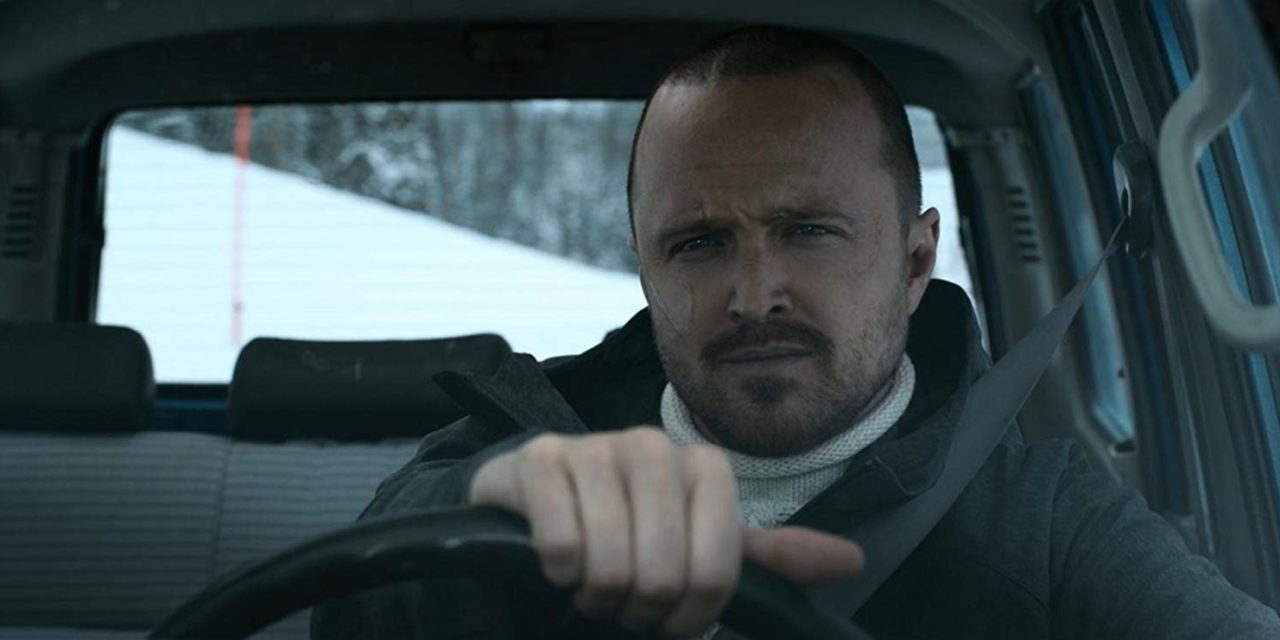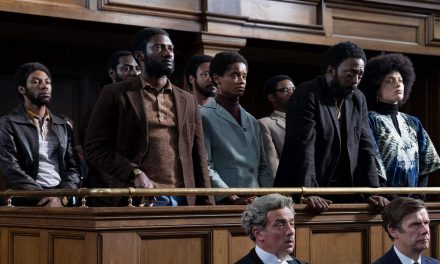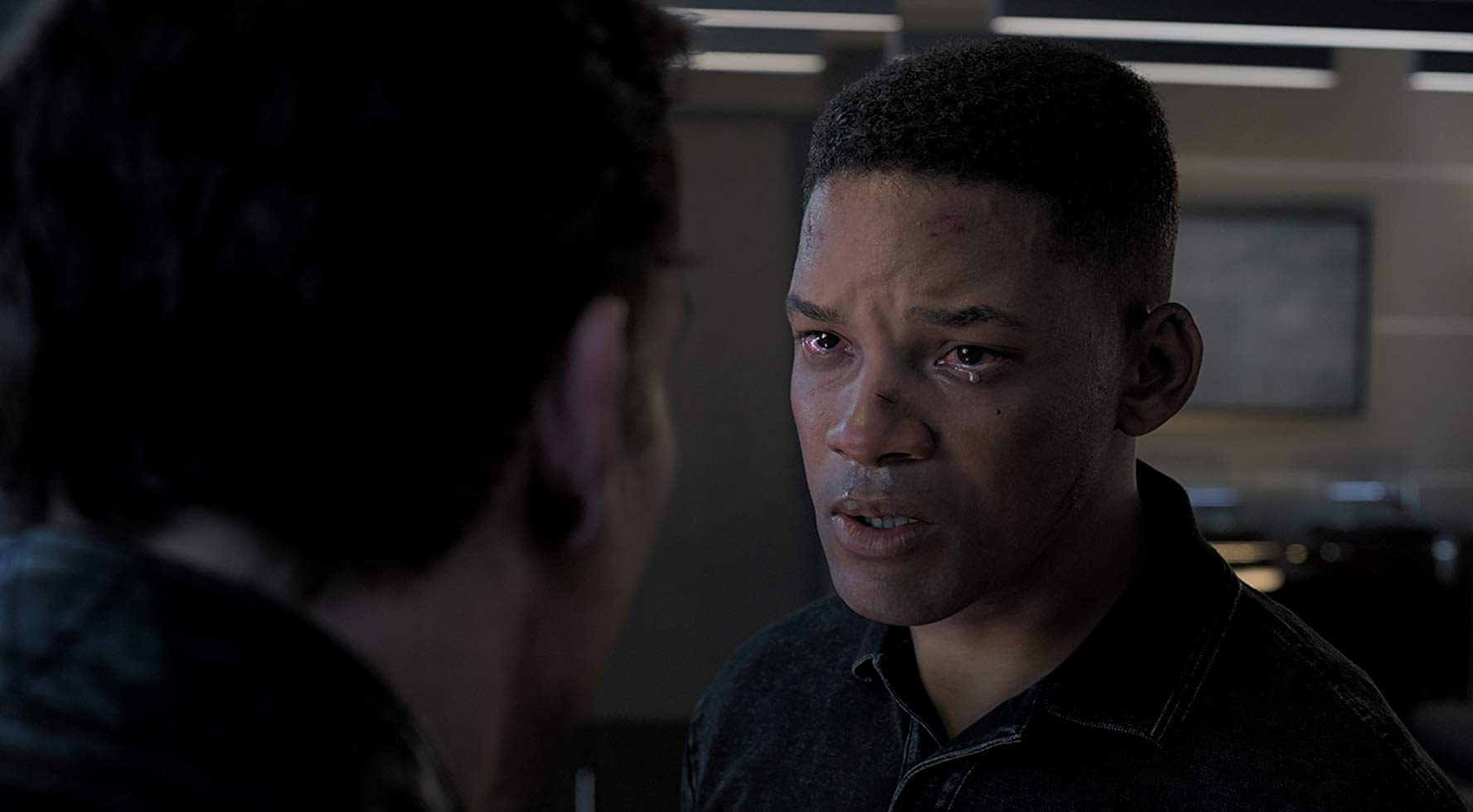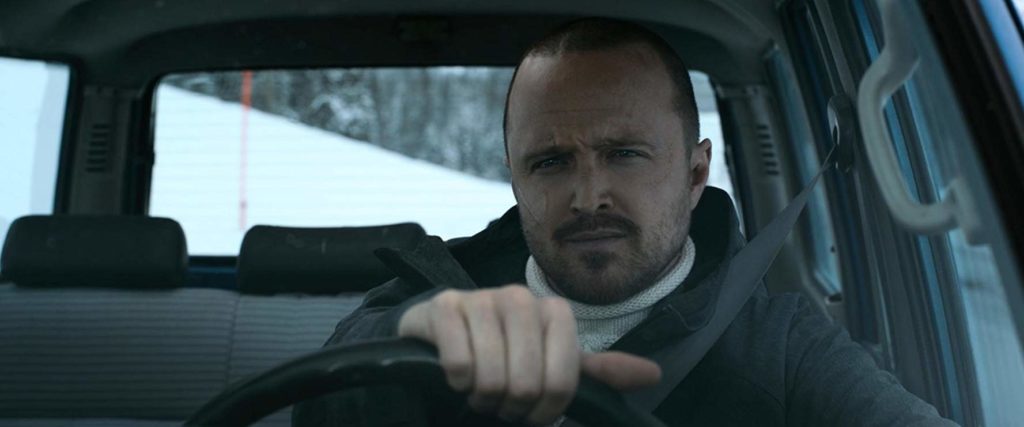
Courtesy of Netflix
Note: This article contains spoilers of “El Camino: A Breaking Bad Movie.”
An additional note from the A&E Editor: Unbeknownst to me “El Camino” and “The Breaking Bad Movie” are the same thing. Please enjoy these to reviews of “El Camino: A Breaking Bad Movie.”
Rhett’s Review:
It is no easy task to follow up the beloved television drama “Breaking Bad.” Nor does the task seem necessary given the spinoff series, “Better Call Saul,” is still airing on AMC. Yet about six years after the show ended, show creator Vince Gilligan has revived the project as the writer and director of the Netflix original film “El Camino: A Breaking Bad Movie,” which follows the events of the series finale. With the last episode ending the show on a high note, was this film worth making?
In the aftermath of the finale, fan-favorite Jesse Pinkman (Aaron Paul) has escaped his life in a cage cooking meth for the family that held him captive. Fleeing in a Chevrolet El Camino, he knows the police will soon be on his tail. Jesse receives brief shelter from his old friends Badger (Matt Jones) and Skinny Pete (Charles Baker), who two help him start his journey to evade the cops, erase his identity and escape to freedom in Alaska.
The film is mostly a solitary experience for Jesse. While he’s alone, he has time to reflect on his captivity and other key moments in his life through flashbacks, featuring cameos from other “Breaking Bad” characters, that help him break free of the cage his life had been put into.
What makes this film somewhat disappointing is that it does little to expand upon the show. While Gilligan’s talent as a director is still visible through the film’s clever framing, limited focus and a few visually engaging sequences, nothing quite feels as powerful as his work on “Breaking Bad.” The film lacks both the moral complexities and debaucheries that Walter White (Bryan Cranston) brought to the original series, and the narrative drive of a strong antagonist figure like Gus Fring (Giancarlo Esposito) or Tuco Salamanca (Raymond Cruz) among others. There are also few memorable moments or quotable lines that punctuate the film the way they do in the original “Breaking Bad.” While the lack of these elements hardly makes “El Camino” a bad movie, it keeps it from feeling like a “Breaking Bad” movie.
However, this may be Gilligan’s attempt at a more introspective story for the series. In “El Camino,” Paul often acts in silence or in very few words, adding to the film’s somber tone. This tone is fortified by the usage of predominantly light grey and white colors in the film, in contrast to the saturated yellows, oranges and greens that give the television series its distinct visual feel. Seeing as this is a story all about Jesse, Paul rightfully carries the film with his performance, and seeing more of this beloved character will surely be more than enough to make the movie worth watching. However, the film sometimes veers too far into making itself fun for the fans. “El Camino” can occasionally come off as an aimless tour of cameos from minor characters meant to harken back to the inherent appeal of its nature as a “Breaking Bad” movie.
What most makes the film feel unnecessary is Jesse’s arc of self-redemption and accepting his past. More screen time for Jesse is always welcome and appreciated, but the viewer learns little more about his character than they already knew by the end of the series. With as many cameos as the movie has and the excellent performance from its lead actor, the film still hardly seems like a necessary addition to the story of the show. In the final episode of “Breaking Bad,” Jesse relieves himself of Walt, shares one last parting glance with him and drives off into the night, screaming for the sweet release of freedom as he smashes through the gates of the compound that held him — I hardly see what we get out of this two-hour film that we don’t already see in that short, bittersweet sequence.
Grade: B-
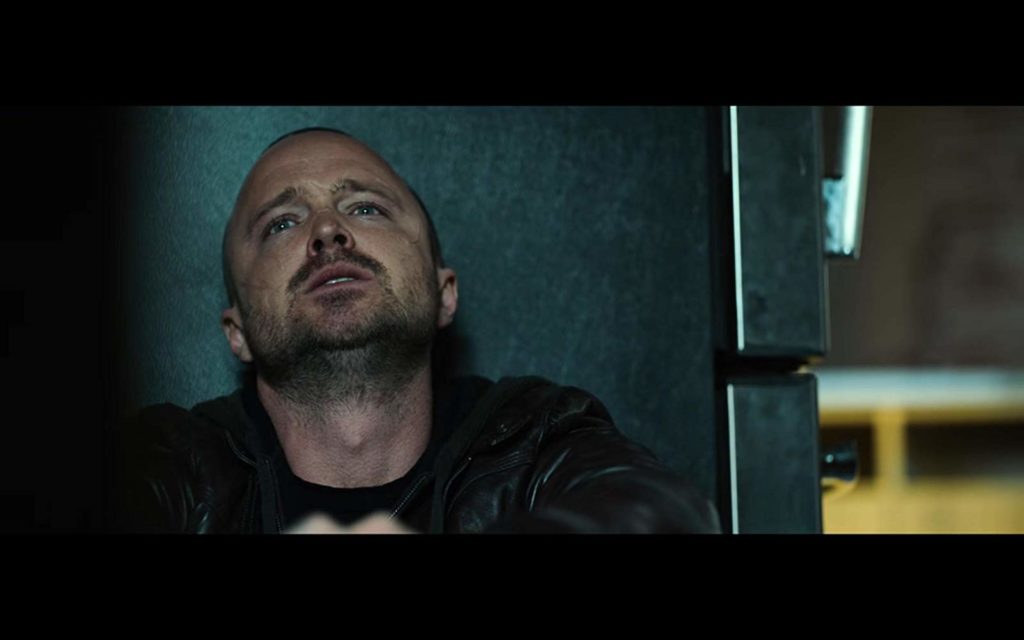
Courtesy of Netflix
Stephen’s Review:
If “El Camino: A Breaking Bad Movie” had been included as a bonus episode or something on the “Breaking Bad” Season 5 DVD, then no one would have watched it. But that’s where it belonged. Though the film is a sincere effort to give fans some closure, “El Camino” comes across as a well-executed bad idea. The writing, cinematography and acting are all up to the high standard set by “Breaking Bad,” but the movie lacks several key ingredients that made the show an exemplar of early “prestige television.”
The film follows Jesse Pinkman (Aaron Paul) immediately after his escape. Pinkman is concerned with obtaining cash and a way out of New Mexico, and he pursues them both with the kind of single-minded intensity usually reserved for food and water. Along the way, he is confronted with his past as well as a couple of villainous welders. Yes, you read that right; the people who gave us Gus Fring, one of the greatest TV villains in recent memory, now give us the kind of douchey guys who probably pushed you around in shop class. They fit the simplicity of the story, which feels like a leftover plot line from Season 1 padded out with flashbacks that expand Pinkman’s past without revealing anything new.
While creator Vince Gilligan remains a great director and can wring tension out of even the most tired scenarios, the film as a whole can’t sustain the intensity of the show. The best episodes of “Breaking Bad” (“Crawl Space,” “Ozymandias,” “Full Measure,” “Gliding Over All,” etc.) raised the stakes with each scene and kept the audience on its toes until the very last moments. “El Camino” never comes close. Does anyone really believe for a moment that Gilligan and co. would add an epilogue to Pinkman’s story that would end with him in a ditch or in jail?
The last that “Breaking Bad” fans saw of Pinkman, he was driving into the night, scarred and damaged but alive, after his mentor Walter White (Bryan Cranston) had freed him from slavery. “El Camino: A Breaking Bad Movie” attempts to give fans a bit more closure than the original ending, without asking if anyone actually wanted it. Although other beloved cultural touchstones have been given reboots or extended codas recently, those that succeed (such as “Twin Peaks: The Return”) have done so by expanding generously on existing material. “El Camino” feels more like a rehash of the greatest hits of “Breaking Bad” than anything especially new. The script finds the same characters reliving the same situations and events that we’ve seen for five seasons. First, Mike (Jonathan Banks) appears right on cue to give life advice. Then, there’s a standoff in the desert, arguments about money and lots of running.
Wondering whether Pinkman can find anything resembling happiness or peace in Albuquerque, New Mexico, is, as expected, fruitless. Of course Pinkman can’t find anything but pain and ghosts in Albuquerque — five seasons of “Breaking Bad” have shown that he has few positive ties to the place. What’s more interesting is whether he can start over far away or whether his scars run too deep. Much of the movie revolves around Pinkman’s quest to escape New Mexico and get to Alaska. Alaska becomes associated with freedom and happiness in Pinkman’s mind: if only he can reach it, then life will be better. Will it? That’s an interesting question, and it’s one the movie resolutely refuses to answer.
The movie isn’t awful, because while it’s essentially more of the same, the same is pretty good. Paul haunts the screen as a grim, feral wreck, and Jesse Plemmons returns playing Todd, the smiling, sociopathic man-child everyone loves to hate. There’s a scene near the end of the movie involving a hidden gun that harkens back to some of Walt’s best plots, and the cinematography remains excellent.
“El Camino” has the surface pleasures of a great “Breaking Bad” episode but lacks several key components, such as brevity, real stakes and a commitment to pushing the boundaries of its world. It’s an unasked-for epilogue that ends up feeling like a 50-minute episode stretched to two hours.
Grade: C+
Rhett Hipp (22C) is from Winter Park, Florida, majoring in film and media studies, creative writing and Japanese language and culture. Along with writing for the Wheel, Hipp is the current vice president of Emory’s Japanese Cultural Club. He reviews films, games and anime. Contact Hipp at rhett.hipp@emory.edu.

